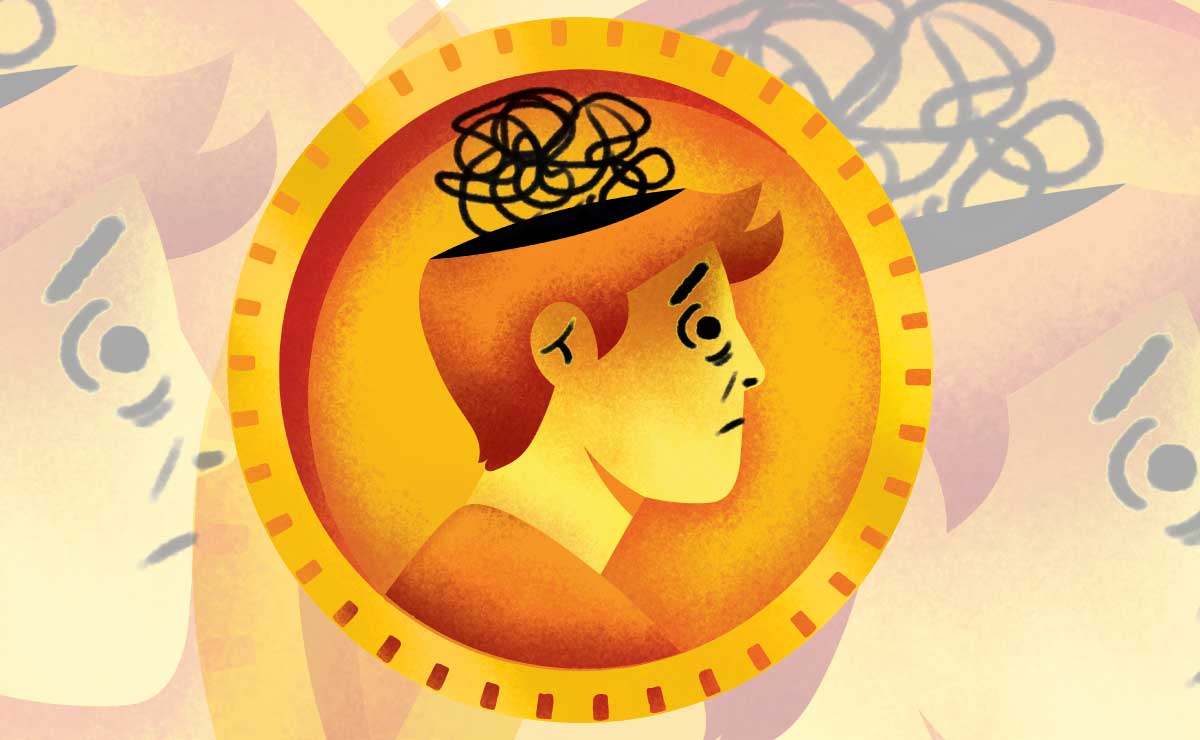For your health, deal with financial stress

According to experts, financial stress can be understood as the constant anguish and pressure in the face of an economic situation full of uncertainty.
The National Committee for the Protection and Defense of Financial Services Users (Condusef) reports that among the main causes of this evil are problems of excessive indebtedness, lack of income to cover expenses or inability to save, among others.
For Mónica Coca, outside contributor to the BBVA Financial Health blog, good financial management is essential to preventing this type of stress and its negative effects on physical and mental health.
According to a Financial Well-Being Report from Invested, Vanguard, Aon, and the Mexican Association of Human Resource Management (Amedirh), two in 10 Mexican workers spend more than half of their salaries paying off debt.
Condusef explains that if you’re living worrying about not knowing if you’ll finish the two weeks with some money or if you’ll be able to pay off your debts, it’s not normal and affects your work life, family life, and health.
Some of the major physiological effects of financial stress are:
Memory and sleep problems and depression. It is also common for all this stress to be transferred to the digestive system, causing slow digestion, colon irritation, gastritis, diarrhea, abdominal pain, and infections.
And you have to be careful, because a person who is under financial stress will not be able to perform to the best of his ability in his work and not help generate more value for his company, unlike those who are in good financial health.
For major diseases … some treatments
According to Monica Coca, BBVA’s external collaborator, financial health is understood as a four-step journey that begins with daily control, continues with savings, continues with debt management and is completed with planning ahead.
First of all, Condusef and BBVA recommend budgeting as a first step to finding the causes of financial anxiety. This way you can create a strategy so that your money is used where you need it.
The budget is not complicated, just write down your income (salaries and visualizations) and your expenses (the expenses you incur from most important to smallest).
This way you will know the expenses that you must cut to face debt. From there, experts suggest creating a savings plan. BBVA recommends automatic savings through banking institution applications.
By keeping track of your daily expenses, you will be able to realize if you have ant expenses. By getting rid of those innocent consumptions (daily coffee or sweets) you will be surprised at the money you allocate for those purchases.
attack your debts
If one of the reasons for your stress is over-indebtedness, plan a strategy.
Condusef suggests starting with the smaller ones or the ones that command more attention.
Increase your savings
By freeing up the ability to pay, the surplus of the two weeks can be used to save, either through apps or at a financial institution.
With saving as a habit, the risk of financial stress will become less likely, Kondosev says.
Improve your financial education
Having good financial knowledge “is an essential tool for day-to-day decision-making and acts as a shield to consumer protection,” says Monica Coca.
This financial knowledge and skills help in maintaining financial health and avoiding financial stress.
Condusef offers through its portal the Diploma of Financial Education.
As our colleague Antonio Hernández de Christian Hoswaldt, Managing Director of Invested, put it together, “People, regardless of their income, may spend more than they earn, and so the problem of managing personal finances is not solved by over-earning.”




